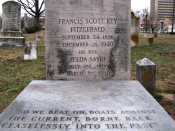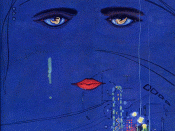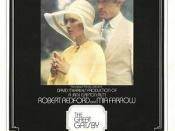The importance of gender and race in "The Great Gatsby" and "The adventures of Huckleberry Finn" are integral, as it accurately portrays many common views and beliefs of society at the time these novels were composed. Within these two novels, many dominant tropes in American writing are also explored. Some examples of the dominant tropes in these particular novels are alienation, independence or freedom, and democracy and equality.
Within "The Great Gatsby" by F.Scott Fitzgerald, there is a strong focus on gender, and the absence of race throughout the text is extremely significant as it demonstrates the societal views of race of the time. Throughout the text, there are only few mentions of race, or 'black' people, and this demonstrates the view of black people, as being second-class citizens, and not worthy to write about.
"The Great Gatsby" was written in 1925 and set in the 1920s.
At this point in history, women were seen as the weaker sex, and although American women had the right to vote, they did not play an important role in American politics at this stage. Women were expected to be obedient to their partners, to marry and to bear their children. Although the 1920s encompassed ideas of the "New Woman", they were still viewed as domestic servants. Like black people in America, women were also viewed as second-class citizens. This has been precisely portrayed in "The Great Gatsby".
In "The Great Gatsby" the female characters are portrayed as inferior to the male characters, and apart from Jordan, the other female characters are displayed as being completely reliant on men. With the exception of Jordan, it appears that none of the females within the text have their own point of view. The women in...


